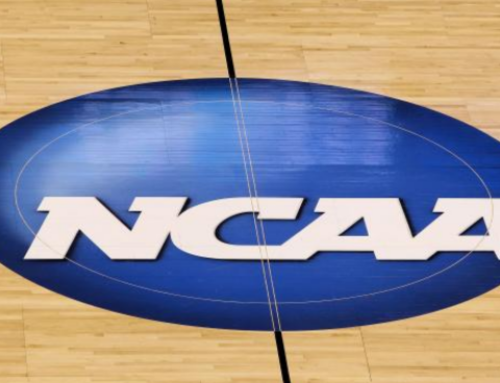College Football's Coaching Carousel: What Athletes Need to Know
The end of the regular season of college football has triggered a few dozen coaching changes, with more likely to come in the next few weeks. Research predicts that over 20% of colleges with football programs will have a new coach in 2013. (Did your favorite Division I school make a coaching change?)
Athletes already think hard about why they choose a particular school; and a coaching change can put a major crimp in their plans. So what’s the overall impact of coaching changes on the athletes?
Let’s be honest: recruiting visits are essentially opportunities for schools to give their best sales pitch. Every school has a product they are trying to sell, and each one highlights the best aspects of its program, what it has to offer (including perhaps a celebrity coach), and the positive experiences athletes can expect. Because, seriously, why wouldn’t they? A coach isn’t going to walk an athlete into the school’s worst dormitory (where the entire freshman class will live), or take him to the horrible dining hall where bland food is served. Coaches want to present a “wow factor” to distinguish themselves from other schools the recruit may be considering.
My advice to athletes is to choose a school based on the relevance of academic majors offered, the quality of faculty and facilities, the size and location, and other immutable factors—not on the identity of a particular coach or the promises and representations they make. (Read How to Lock Up a College Scholarship on a Recruiting Visit.)
If you’re considering schools right now, here are some good factors that usually remain consistent:
- Offer the major you are looking for
- The program’s long-standing traditions
- Strong record over the last five years
- Strong record over the last twenty years
- Good location
In my three years as a football player at Bowling Green State University and one year at Ashland University, I worked with six different defensive back coaches. A few were reassigned to the position, and some moved on to higher paying jobs at bigger schools. We as players never faulted the coaches for leaving; but athletes need to keep in mind that the “coach carousel” is constantly constantly spinning around in college football programs. It’s something we learned to deal with, especially in situations that are unpredictable.
Always remember: the coach who recruited you could leave the program during your four or five years on the team. So you need to consider:
- How long has a head coach been there?
- How long have other staff members been there?
- Has there been a lot of assistant coach turnover in recent years?
- How has the team been performing lately?
- Where did the head coach come from?
Choosing a school is one of if not the biggest decision a student-athlete makes. Dozens of factors need to be taken into account. I strongly encourage athletes to make their decisions with full knowledge that the coach who recruited them might not be there during their entire collegiate career. If they are, it’s a bonus.
Photo: si.com
RECOMMENDED FOR YOU
MOST POPULAR
College Football's Coaching Carousel: What Athletes Need to Know
The end of the regular season of college football has triggered a few dozen coaching changes, with more likely to come in the next few weeks. Research predicts that over 20% of colleges with football programs will have a new coach in 2013. (Did your favorite Division I school make a coaching change?)
Athletes already think hard about why they choose a particular school; and a coaching change can put a major crimp in their plans. So what’s the overall impact of coaching changes on the athletes?
Let’s be honest: recruiting visits are essentially opportunities for schools to give their best sales pitch. Every school has a product they are trying to sell, and each one highlights the best aspects of its program, what it has to offer (including perhaps a celebrity coach), and the positive experiences athletes can expect. Because, seriously, why wouldn’t they? A coach isn’t going to walk an athlete into the school’s worst dormitory (where the entire freshman class will live), or take him to the horrible dining hall where bland food is served. Coaches want to present a “wow factor” to distinguish themselves from other schools the recruit may be considering.
My advice to athletes is to choose a school based on the relevance of academic majors offered, the quality of faculty and facilities, the size and location, and other immutable factors—not on the identity of a particular coach or the promises and representations they make. (Read How to Lock Up a College Scholarship on a Recruiting Visit.)
If you’re considering schools right now, here are some good factors that usually remain consistent:
- Offer the major you are looking for
- The program’s long-standing traditions
- Strong record over the last five years
- Strong record over the last twenty years
- Good location
In my three years as a football player at Bowling Green State University and one year at Ashland University, I worked with six different defensive back coaches. A few were reassigned to the position, and some moved on to higher paying jobs at bigger schools. We as players never faulted the coaches for leaving; but athletes need to keep in mind that the “coach carousel” is constantly constantly spinning around in college football programs. It’s something we learned to deal with, especially in situations that are unpredictable.
Always remember: the coach who recruited you could leave the program during your four or five years on the team. So you need to consider:
- How long has a head coach been there?
- How long have other staff members been there?
- Has there been a lot of assistant coach turnover in recent years?
- How has the team been performing lately?
- Where did the head coach come from?
Choosing a school is one of if not the biggest decision a student-athlete makes. Dozens of factors need to be taken into account. I strongly encourage athletes to make their decisions with full knowledge that the coach who recruited them might not be there during their entire collegiate career. If they are, it’s a bonus.
Photo: si.com
RECOMMENDED FOR YOU
Create A Free Recruiting Profile Today!
CaptainU helps athletes & parents not only be proactive but also to manage and take control of their entire recruiting journey.











